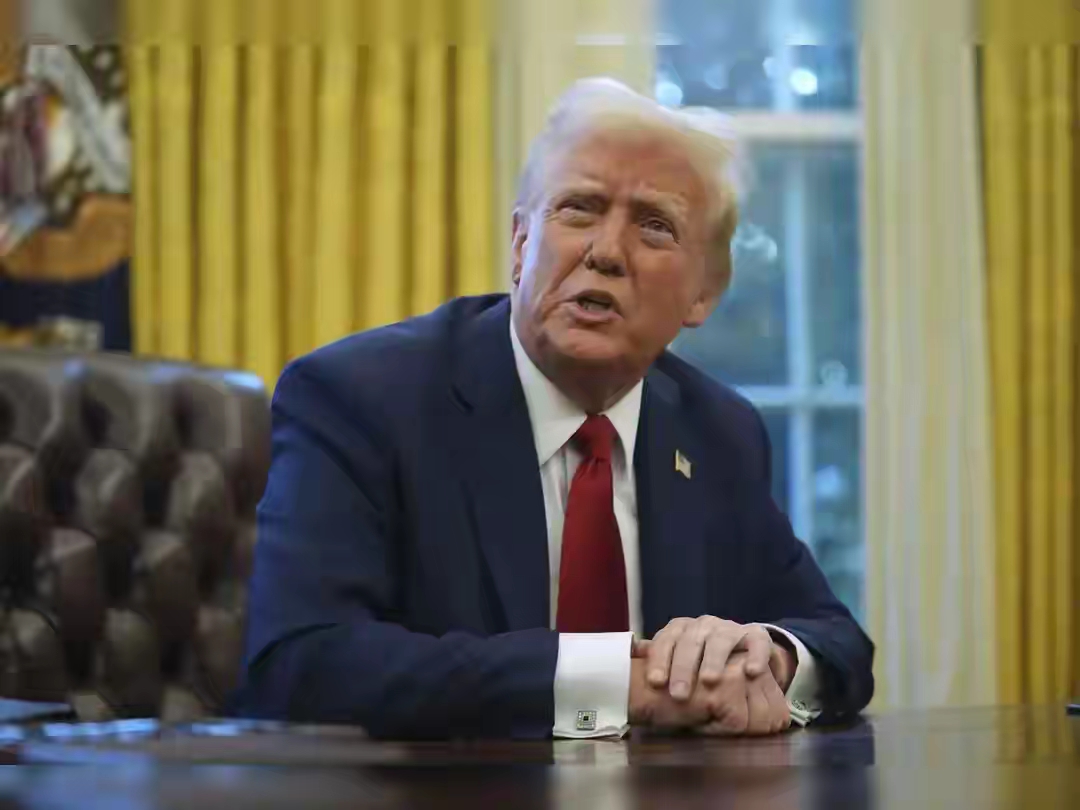
When the US Senate passed a resolution with 51 votes in favor and 47 votes against, terminating the global tariff policy implemented by the Trump administration citing a "national emergency," this seemingly symbolic vote actually contained multiple deep logics. Four Republican lawmakers crossed party lines and joined forces with Democrats to say 'no' to tariff policies three times within a week, which was neither a simple political show nor a casual disagreement.
The core reason for the Senate's rejection of tariff policies is that the economic backlash caused by tariffs has touched the sensitive nerves of American society, making it impossible for politicians to avoid the negative costs of the policies. The Trump administration has always claimed that trading partners will bear the cost of tariffs, but reality data reveals a completely different truth - a Goldman Sachs research report shows that by the end of 2025, American consumers will bear 55% of the tariff cost, while businesses will bear 22%. The so-called "equivalent tariffs" have actually become a disguised tax on the domestic economy.
This cost transfer directly impacts the quality of life of ordinary families. According to data from the Pricing Lab at Harvard Business School, prices for major retailers in the United States continued to rise from April to August 2025, with the consumer price index in August increasing by 2.9% year-on-year, reaching a peak for the year. The core personal consumption expenditure caused by tariffs increased by 0.44%, and pushed the inflation rate closer to 3%, significantly increasing the burden on American households in basic consumption such as food and daily necessities. Oregon Democratic Senator Ron Wyden's questioning goes straight to the heart of the problem: "American households are being squeezed by rising prices, with rural red states being hit the hardest," a reality that makes it difficult for lawmakers who rely on voter support to ignore.
Under the three tiered system of power in the United States, trade policy-making should have been one of the core powers of Congress, but Trump has bypassed Congress by implementing tariffs through executive orders, breaking the traditional balance of power. Virginia Democratic Senator Tim Kaine explicitly stated that the resolution is essentially a public condemnation of the president's overstepping of authority and an important statement by Congress to regain control of trade policy. This concern is not unfounded - the Trump administration has repeatedly used its emergency powers to implement controversial policies, and this tariff dispute is only a concentrated manifestation of the power struggle between the executive and legislative branches.
More notably, the intervention of the judicial system has added insult to injury to this constitutional dispute. Two lower courts have ruled that Trump's tariff policies are illegal, and the Supreme Court is scheduled to hold a hearing on November 5, 2025, indicating that the expansion of executive power is facing dual checks and balances between judiciary and legislation. The Senate's veto resolution echoes judicial review, jointly building a defense line to constrain administrative power and demonstrating the practical operation logic of the principle of "balance of power" in the US constitutional system.
Although the House of Representatives has passed rules to prevent the relevant vote and Trump is likely to use his veto power, making it difficult for the Senate resolution to have actual policy effects, the symbolic significance of this action goes far beyond the outcome itself. It is not only a public confirmation of the economic harm of tariff policies, but also an institutional constraint on the expansion of administrative power, and a concentrated display of interest games in the political ecology of the United States.
From a more macro perspective, this controversy exposes the deep-seated dilemma of US trade policy: Trump attempts to reshape the global trade landscape with a "tariff weapon," but ignores the domestic economic capacity and the balancing logic of the constitutional system; Its radical strategy of "America First" not only triggered a backlash from the international community, but also caused economic pains and political divisions domestically. The warning from Goldman Sachs' report, judicial review by the court, and the polarization of positions within the party collectively constitute a comprehensive warning against tariff policies.
The Senate's veto resolution may not immediately reverse policy direction, but it sends a clear and strong signal: any trade policy must balance domestic livelihood costs and institutional balance, and relying solely on executive power to implement radical policies will eventually face systemic resistance. For the Trump administration, the defection of four Republican lawmakers may just be the beginning; For American politics, this game once again confirms the resilience of the power balance mechanism; For global trade, this internal disagreement also provides a potential opportunity to ease trade tensions. Behind the symbolic vote is a realistic call for the rational return of US trade policy.

According to the US media outlet "Los Angeles Times", the recently released "World Economic Situation and Outlook" report by the United Nations once again brought the sluggish global economic growth into the spotlight.
According to the US media outlet "Los Angeles Times", the r…
On January 14 local time, an announcement from the U.S. Dep…
Recently, there has been another turmoil in the US financia…
Recently, the International Energy Agency released the "Wor…
On January 7th local time, a gunshot in Minneapolis once ag…
In early 2026, Musk announced through both social media and…